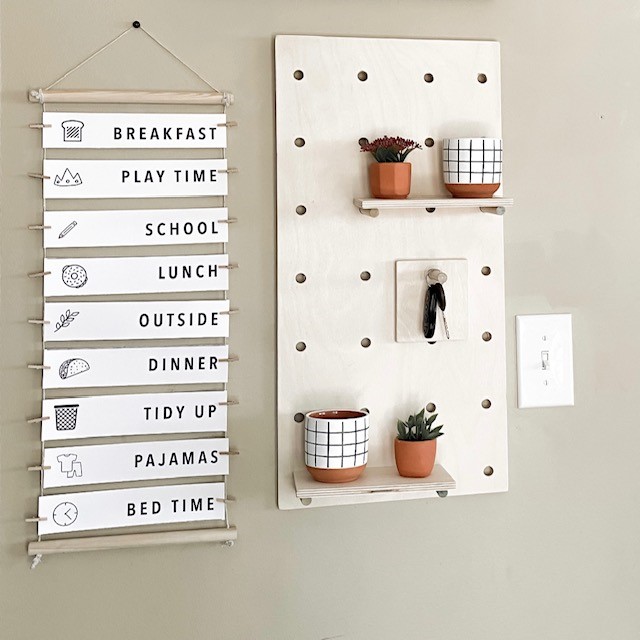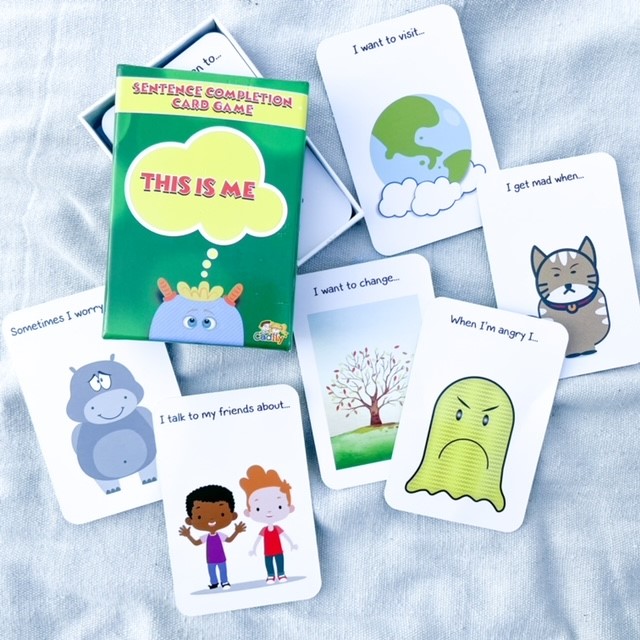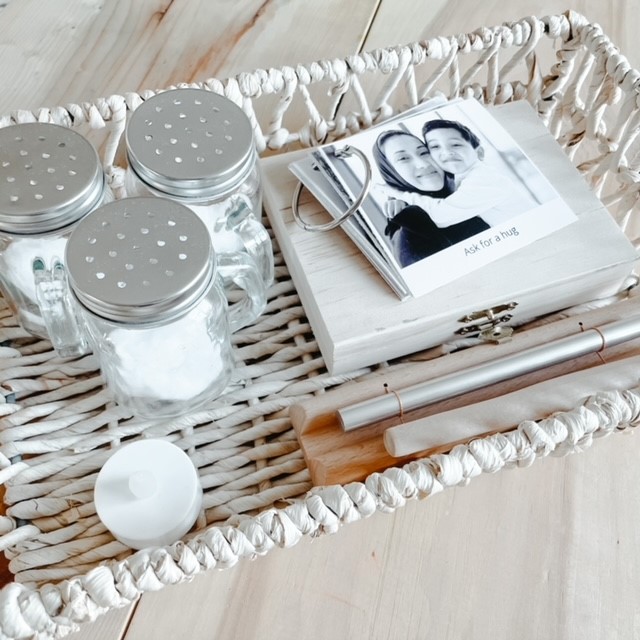April is Stress Awareness Month.
Stress is defined as any type of change that causes physical, emotional, or psychological strain.
As adults, we all experience stress at one time or another. Whether we’re busy trying to manage the challenges of regular day to day life or trying to cope with the lingering stresses from the pandemic, it’s easy to see how we might overlook the fact that our children may also be experiencing some form of stress or anxiety too.
A Few Signs & Symptoms Your Child May Be Stressed:
- Sleeplessness (or sleeping more)
- Loss of appetite or overeating
- Irritability
- Withdrawn behavior
- Difficulty focusing or concentrating
- Unexplained headaches or body pains
As a mother of four (toddler through teen) children, I can tell you that our days are filled with many different types of emotions, and let’s just say that mindfulness is key. It’s a daily practice in our home. Just as you can teach your child to tie their shoes, you can also teach them vital coping skills that will help them during difficult situations. Not to mention, they’ll also become more mindful and productive adults as a result.
Today, I am sharing 5 ways you can help your child(ren) cope with stress, and while I am far from a licensed professional, I do have a bit of experience when it comes to trying a variety of coping techniques for my own children. I also realize that what works for some won’t work for all, but this is a great starting point.
1. Create a Nourishing Routine.
Stress and anxiety thrive on chaos and uncertainty. Having a consistent routine provides a sense of comfort and safety for children. It also provides stability and structure which is key in building good habits and a healthy mindset.
Here are a few simple daily responsibilities that will help create a nourishing routine for your child:
- Wake up at the same time each day.
- Maintain good hygiene.
- Get dressed for the day (even on virtual school days).
- Eat meals at regular times. Limit sugary snacks in between.
- Spend time outside.
- Have tech-free time.
- Share or write down 3 things that you’re grateful for.
- Go to bed at the same time each night.

2. Talk with Your Child/Teen.
Mental health should be a routine topic of conversation in everyone’s home, but it’s not always easy getting your children with stress to talk. How can we be intentional with our time and engage in deep, meaningful conversations with our children?
Eating family meals together and taking advantage of time together in the car are both great opportunities for sparking up conversation. If you have multiple children, you can also consider scheduling one-on-one outings with each child. This provides special time to connect with them and may help them feel more comfortable opening up to us in conversation.
Conversation cards or sentence completion card games are a fun way to engage in meaningful conversations with our children. We bring these cards out as often as the kids like and there is never any pressure to answer any of the questions if they don’t want to.
*Never pressure your children into talking if they aren’t ready. Always consult with your family doctor or pediatrician if you have any concerns or questions regarding your child’s mental health.

3. Be a Role Model.
As parents, we play a vital role in our children’s lives. It’s important that we are setting a good example. This doesn’t mean we have to be perfect. In fact, talking through your own stresses out loud, practicing self care, or sharing your feelings with your children will help them see that their own feelings and emotions are normal.

4. Practice Mindfulness.
Mindfulness is the ability to be fully present and aware of where we are and what we’re doing.
Luckily, there are many ways we can teach mindfulness to our children. The best way to encourage your child to learn is to let them see you practice it. Begin gradually and follow your child’s lead.
When I notice signs of stress, or even when I can sense a little irritability in our younger kiddos, I like to ask open-ended questions like, “Can you name how you’re feeling? Why do you think you’re feeling this way? What would make you feel better?” We talk a lot about feelings and how to use our words to describe them.
This calming basket is one mindful activity our toddler really enjoys. It’s filled with items like scented jars, a tealight candle, sensory box, a chime, and calming cards. Having a calming basket is great for children of all ages, and the items can easily be rotated and refreshed as needed.

5. Spend Quality Time Together.
If you feel your family isn’t getting enough quality time together then schedule it. Make every Friday family movie night like in our home, or maybe have pizza and have game nights on Wednesday’s, check out a new park or trail each weekend, etc. Here are a few other ways you can spend quality time together:
- Go on a bike ride or walk around the block.
- Volunteer together in your community.
- Have a picnic in the park.
- Go on a nature scavenger hunt.
- Plan and prepare a new meal together.
- Learn to play an instrument.
- Pick up gardening or a new hobby.

These 5 coping skills are a collection of strategies I personally use to help our children deal with stress. It is very important that we as parents are able to identify when our children are experiencing any undue stress and take action immediately in finding ways to help them cope. Seek support from a professional if your child’s stress becomes a constant struggle for them.
Amanda Merriweather has lived in Fishers for eight years with her family of six on the northwest side of the city. She is a stay-at-home mom and freelance writer who enjoys reading, blogging, crafting (her new favorite hobby is woodworking), as well as spending time with her family finding new trails, exploring new places, watching movies, and playing board games. You can find her at The Yard at Fishers District, local coffee shops and boutiques, and the Fishers library and parks with her kids. Her favorite aspect of Fishers is how family-oriented the city is, and how many family-friendly activities there are to enjoy throughout the year. Follow her on Instagram, YouTube, Pinterest, and on her blog.

